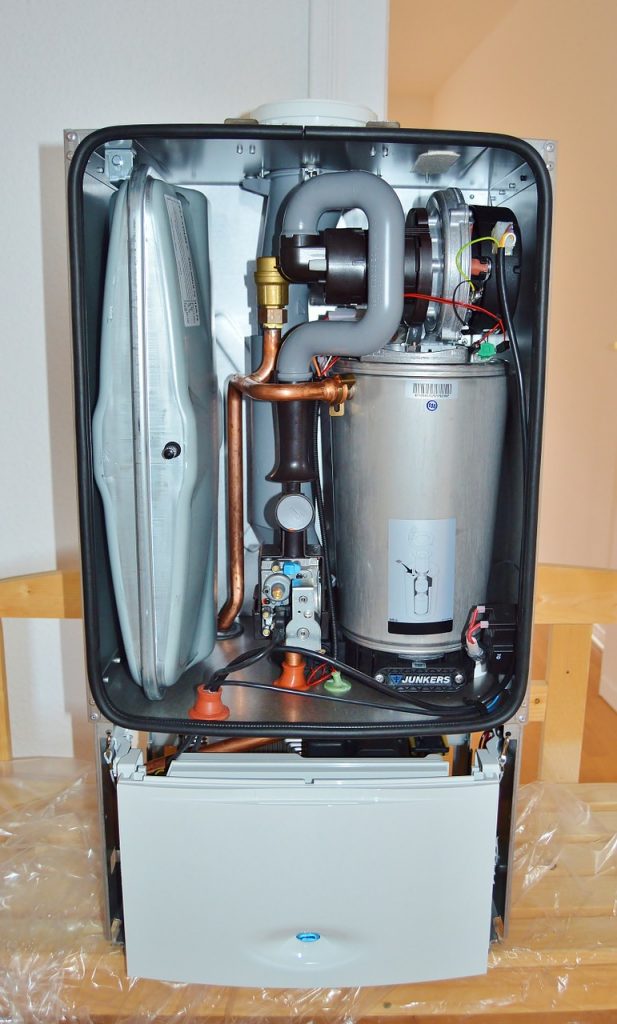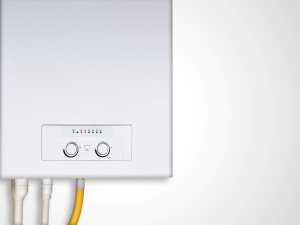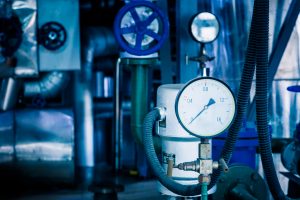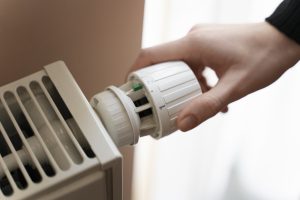Is your hot water heater making a knocking noise?
In most cases, that popping or knocking noise is due to sediment buildup, otherwise referred to as “scale buildup.” Over time, hard water can cause minerals in the water to crystallize and form a mineral scale along the bottom and walls of your water heater. This can lead to a variety of issues if left untreated.
In this article, we’ll cover what causes a water heater popping sound and how to fix the issue when it arises. We’ll also leave you with helpful tips for preventing any further issues.
What Causes a Water Heater Popping Sound?
Water heater popping sounds are due to a buildup of minerals called scale. When hard water is heated up and sits in the same spot over time, the salt and other minerals in the water can crystalize and fuse to the walls of your water heater.
The popping sound occurs when hot air bubbles inside of the heater make contact with the scale at the bottom of the water heater. When the bubbles collide with the buildup, it knocks parts of the sediment loose, causing those particles to knock against the water heater.
This can happen to water heaters, regardless of how old or new they are. It’s easy to tell when there’s an issue with scale buildup because the popping and knocking sounds closely resemble that of popcorn popping. It’s important to fix this issue right away because leaving sediment buildup in your water heater can cause the system to overheat and stop working.
Sediment Vs. Scale: Are They the Same?
When thinking in terms of HVAC systems, you’ll likely see the words “sediment” and “scale” used interchangeably. Although this is common practice, there is a slight difference between the two.
While sediment refers to any of the mineral content that has solidified and attached itself to the bottom of your heater, scale refers to all of that sediment fusing together. In short, scale is the “coming together” of all loose sediment in your water heater.
How to Spot Sediment Damage
There are several indicators of water heater damage due to sediment buildup. Among these are the absence of hot water, water temperature fluctuations, the signature popping or knocking noise, a rusty look and bad smell, small leaks, and prolonged heating times.
In most cases, sediment buildup can be diagnosed by the water heater popping sound.
How to Remove Sediment Buildup
To get rid of sediment and scale buildup, you’ll need to flush out your hot water tank. To do so properly, follow these steps:
- Turn off the water supply. The cold water valve is usually located at the top of the heater’s tank.
- Turn off the power supply. This is important to prevent burning yourself during the process. On top of that, keeping the power supply on while the tank is empty will cause damage to the unit.
- Attach a hose to the drain valve. While one end of the hose is connected to the tank, the other end should be directed to your basement drain or to a spot outside.
- Turn on a hot water tap. Doing this will speed up the draining process. The hot water tap you turn on should be located on the main level of the house.
- Open the drain valve in the hot water tank. The draining process can take anywhere from 20 minutes to an hour.
- Turn on the cold water valve three times. Doing this will help break up and drain the scale buildup out through the connected hose. In some cases, the scale buildup may be so prevalent that it has clogged the drain.
- Open and close the drain valve. Do this three times. Compressed air can also help loosen up sediment and get it out of your tank.
You should repeat each of these steps until you notice clear water running through the drain pipes. The hot water tap should remain on for the entirety of the process to ensure any clogs are dislodged.
Once you notice clear water, you can close the drain valve. Next, turn the cold water valve back on. Let the tank fill up until you see water flowing through your hot water tap. Once you see a good flow, you can bring power back to your water heater and check for any leaks.
Preventative Measures for the Future
Because scale forms from the minerals in hard water, it’s smart to look into installing a water filtration system, which will catch most of the minerals and other extras in your water line and keep them out of your water heater.
Another solid preventative measure comes from temperature regulation. Generally, it’s recommended to keep the water at no hotter than 120 F. Any hotter and you risk more minerals separating from the water and turning into scale again.
Some homeowners also use vinegar to clean out the tank before refilling and turning the power back on. Although vinegar is acidic, it’s very mild and is considered safe to use on the unit. Lastly, a water softener may be a good investment too. Water softeners are similar to a filtration system in that they capture the minerals in the water. However, the softener physically weakens the mineral to make it softer and less likely to cause damage.
Parting Thoughts
If your new water heater is making a knocking noise, it is likely due to sediment buildup from hard water.
As soon as you hear your water heater making a popping sound, it’s important to either take care of the issue right away or call in a professional to help. Fixing the issue as soon as possible prevents major damage.
By flushing the tank and taking preventative measures in the future, you won’t have to deal with any more popping sounds coming from your water heater.




